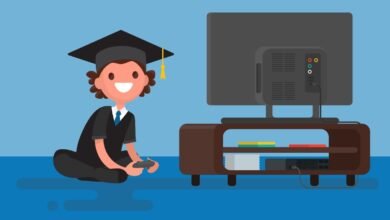How to Ace Your Exams: Top Study Strategies for 2024
Master effective study strategies to ace your exams in 2024. Discover proven techniques to enhance focus, retention, and performance.

When it comes to excelling in academics, employing effective study strategies is crucial. These strategies not only help you retain information better but also prepare you to handle the pressure of exams with confidence. As the academic landscape evolves, staying ahead requires adopting methods that are both efficient and tailored to modern educational demands. Whether you’re a high school student, a college scholar, or preparing for professional certification, having a game plan can make all the difference.
In 2024, the challenges of exam preparation are amplified by distractions and a fast-paced environment. However, with the right study strategies, you can overcome these hurdles and achieve your academic goals. From time management techniques to active learning, every step in the preparation process plays a pivotal role. This article dives deep into proven strategies to help you maximize your study time and perform at your best.
Understanding Your Learning Style
Every student is unique, and understanding your learning style is the first step toward effective studying. Visual learners benefit from diagrams and charts, while auditory learners might find success in listening to recorded lectures. Kinesthetic learners, on the other hand, prefer hands-on activities. Tailoring your study strategies to match your learning style enhances retention and minimizes wasted effort.
Setting Clear Goals
Setting specific and measurable goals gives direction to your study efforts. Instead of vague aspirations like “study more,” define objectives such as completing two chapters of a textbook or mastering a specific concept by a set date. Clear goals help you stay organized and focused throughout your preparation.
Creating a Realistic Study Schedule
Time management is at the core of successful study strategies. A realistic study schedule allocates ample time for each subject, breaks tasks into manageable chunks, and includes regular breaks to prevent burnout. Sticking to this schedule ensures steady progress without last-minute cramming.
Utilizing Active Learning Techniques
Passive reading of textbooks is rarely effective. Instead, engage with the material through active learning techniques such as summarizing, teaching concepts to others, or applying knowledge to practice questions. These methods not only enhance understanding but also solidify information in your memory.
Mastering the Art of Note-Taking
Effective note-taking is a vital part of successful study strategies. Organized and concise notes make reviewing material easier and more productive. Use techniques like the Cornell Method or mind mapping to structure your notes and highlight key concepts.
Reviewing and Revising Regularly
Consistent revision is essential for long-term retention. Spaced repetition, where you review material at increasing intervals, is a proven method for embedding knowledge. Regularly revisiting previous lessons prevents forgetting and keeps information fresh.
Balancing Study with Breaks
Studying for hours on end without breaks can lead to diminishing returns. Short, frequent breaks boost productivity and keep your mind sharp. Techniques like the Pomodoro Technique, which alternates 25 minutes of focused study with 5-minute breaks, are highly effective.
Minimizing Distractions
Creating a distraction-free study environment is essential for focus. Turn off notifications, designate a quiet study space, and inform those around you of your study schedule. The fewer interruptions you face, the more efficiently you can work.
Harnessing Technology for Learning
Educational technology can elevate your study strategies. Apps for flashcards, digital planners, and online resources like video lectures or interactive quizzes provide a modern edge to traditional studying. However, use technology judiciously to avoid unnecessary distractions.
Practicing with Past Papers
Solving past exam papers or sample questions helps familiarize you with the exam format and types of questions you might encounter. This practice also builds confidence and highlights areas where you need further improvement.
Maintaining a Healthy Lifestyle
Good health is integral to effective studying. A balanced diet, adequate sleep, and regular exercise enhance cognitive function and concentration. Avoid over-reliance on caffeine or late-night cramming sessions, as these can hinder performance.
Staying Positive and Motivated
A positive mindset plays a critical role in exam success. Reward yourself for milestones achieved, surround yourself with supportive peers, and remind yourself of the bigger picture. Motivation fuels persistence and helps you overcome challenges.
Seeking Help When Needed
No one succeeds alone, and seeking help is a smart strategy. Reach out to teachers, classmates, or tutors for clarification on difficult topics. Collaborative study sessions can also provide fresh perspectives and deepen your understanding.
Adapting Strategies for Online Learning
In an increasingly digital world, online learning has become a staple. Adapting your study strategies to suit virtual platforms ensures you stay engaged and organized. Take advantage of online forums, recorded lectures, and virtual study groups.
Building Confidence Through Mock Exams
Taking mock exams is an excellent way to prepare for the real test. Mock exams simulate the actual exam environment, helping you understand time constraints and the complexity of questions. They also highlight your strengths and areas that require improvement. By practicing under exam conditions, you build confidence, reduce anxiety, and become familiar with managing time effectively.
Improving Memory Retention Techniques
Memory plays a crucial role in studying. Techniques like visualization, mnemonic devices, and association methods can significantly improve your ability to recall information. For instance, associating concepts with images or creating acronyms to remember complex topics makes learning more engaging and effective. Reviewing material before bedtime also helps consolidate information in long-term memory.
Managing Stress During Exam Preparation
Stress can undermine even the best study strategies. Incorporating relaxation techniques like deep breathing, meditation, or yoga into your routine can alleviate exam-related anxiety. It’s equally important to maintain a balanced approach by scheduling downtime for hobbies and social interactions. A calm and composed mind is more receptive to learning and problem-solving.
Leveraging Group Discussions for Clarity
Group discussions are a powerful tool to clarify complex concepts and gain different perspectives. Explaining topics to peers reinforces your understanding, while their questions may help uncover gaps in your knowledge. Effective group discussions encourage active engagement and foster a collaborative learning atmosphere, enhancing overall comprehension.
Developing Resilience and Grit
Success in academics isn’t just about intelligence; it’s also about resilience and perseverance. Embrace challenges as opportunities to learn and grow. Developing grit ensures that you remain consistent and motivated, even when faced with setbacks. This mindset not only helps in academics but is also a valuable life skill.
Using Audio and Video Learning Resources
Auditory and visual aids cater to different learning preferences and can make studying more interactive. Podcasts, video lectures, and documentaries related to your subject matter provide alternative ways to absorb information. These resources are especially helpful for auditory and visual learners who might find traditional study methods less effective.
Taking Advantage of Office Hours and Instructor Feedback
Most educators offer office hours or feedback sessions. Utilize this time to seek clarification on complex topics or gain deeper insights into the material. Teachers can provide tailored advice and address specific questions, giving you a clearer understanding and boosting your confidence in challenging areas.
Learning Through Teaching Others
The adage “you learn best by teaching” holds true in academics. Explaining concepts to someone else requires you to simplify and structure your thoughts, deepening your understanding. Teaching peers or even pretending to teach an imaginary audience is an excellent way to reinforce your learning.
Tracking Progress with Journals
Maintaining a study journal helps you track progress, set priorities, and reflect on your preparation. Documenting daily or weekly achievements keeps you motivated and provides insights into areas that need more focus. It’s a simple yet effective tool to ensure steady improvement.
Avoiding Information Overload
While studying extensively is important, cramming too much information in one session can lead to burnout and reduced retention. Focus on quality over quantity by concentrating on essential topics and spreading out your study sessions. This ensures that your mind remains fresh and receptive.
Mastering the Art of Self-Assessment
Self-assessment is a critical component of effective study strategies. Regularly test yourself using flashcards, quizzes, or self-made questions. This practice helps identify weaknesses, reinforces strengths, and builds the confidence needed to perform well in exams.
Staying Organized with Subject Prioritization
Not all subjects require the same amount of preparation. Prioritize subjects based on their difficulty and importance in the exam. Allocate more time to challenging topics while ensuring you maintain a balance across all areas. This focused approach optimizes your study efforts.
Incorporating Physical Movement into Study Sessions
Physical movement, such as taking short walks or stretching during breaks, enhances focus and reduces fatigue. Incorporating light exercise into your routine also boosts blood circulation to the brain, improving cognitive performance and memory retention.
Developing Exam-Specific Strategies
Different exams require different approaches. For example, multiple-choice exams focus on accuracy and speed, while essay-based exams demand strong analytical and writing skills. Tailor your study strategies to align with the format and expectations of the specific test you are preparing for.
Staying Consistent with a Study Routine
Consistency is key to effective studying. Following a fixed study schedule trains your brain to focus during specific times, creating a rhythm that enhances productivity. Over time, this routine reduces procrastination and makes studying a natural part of your daily activities.
Read More: How to Ace Your Exams
Conclusion
Acing your exams in 2024 requires more than just hard work; it demands smart and strategic planning. By adopting effective study strategies, such as understanding your learning style, managing time wisely, and maintaining a healthy lifestyle, you create a robust foundation for success. Each step in your preparation process, from creating clear goals to practicing with past papers, contributes to a comprehensive and focused approach to learning.
Remember, academic success is a journey, not a race. Consistency, resilience, and adaptability are your greatest allies. As you implement these strategies, you’ll find that studying becomes less of a chore and more of an empowering process. Keep your motivation high, your goals clear, and your commitment unwavering, and you’ll not only ace your exams but also emerge as a more confident and capable individual.
FAQs
1. What are the most effective study strategies for students?
The most effective study strategies include understanding your learning style, setting clear goals, creating a realistic schedule, and engaging in active learning techniques.
2. How can I improve my focus while studying?
To improve focus, minimize distractions, establish a quiet study space, and use techniques like the Pomodoro Method to maintain productivity.
3. How important is a healthy lifestyle for academic success?
A healthy lifestyle enhances cognitive function, concentration, and energy levels, all of which are essential for effective studying and exam success.
4. How often should I revise my study material?
Regular revision, especially using spaced repetition techniques, ensures long-term retention and better understanding of study material.
5. Can collaborative studying help me perform better in exams?
Yes, collaborative studying offers fresh perspectives, clarifies doubts, and fosters motivation, making it an excellent addition to individual study strategies.







